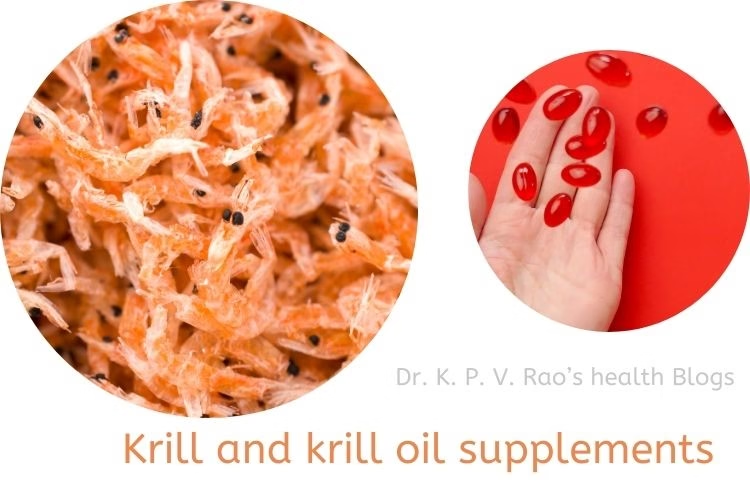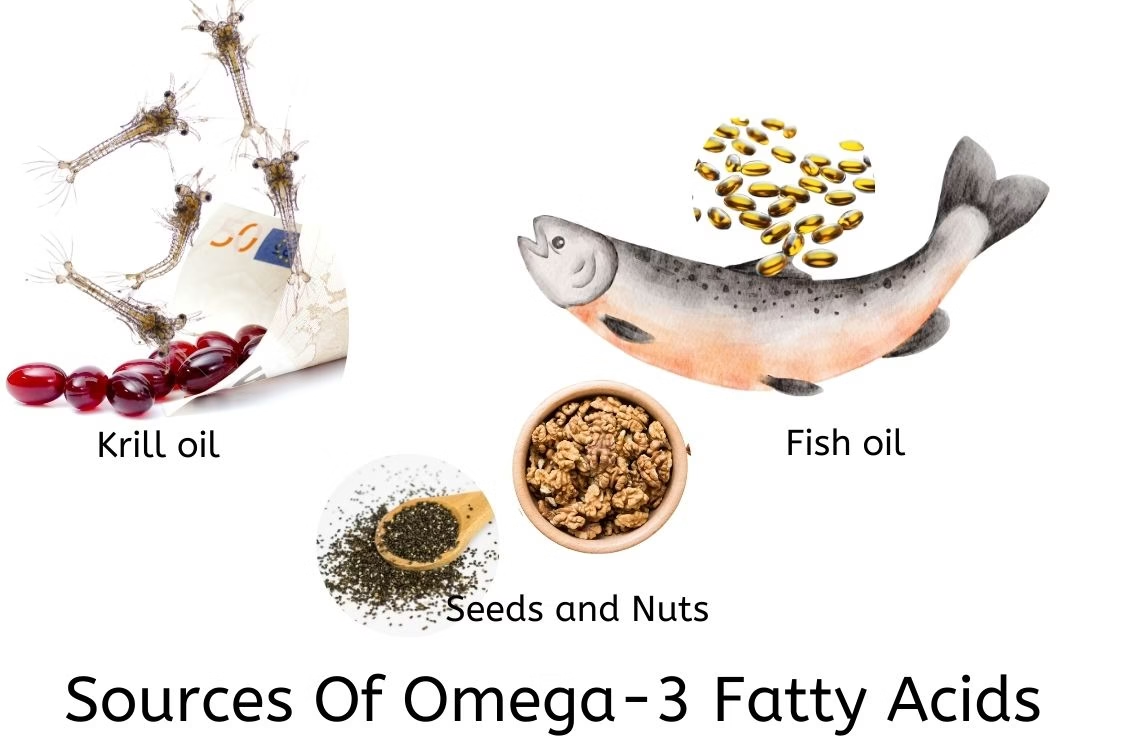The Role of Omega-3 Fatty Acids in heart attack survivors
Omega 3 fatty acids -What are they and their types?
Omega-3 fatty acids are a group of essential fats that are important for various bodily functions. They are categorized into three main types:
- alpha-linolenic acid (ALA), which are found in plant products like seeds and nuts, for example chia seeds and walnuts.
- eicosapentaenoic acid (EPA), and
- docosahexaenoic acid (DHA).
Both eicosapentaenoic and docosahexaenoic acids are found in animal products, especially in omega 3 fatty acids in fish oil and krill oil.

These fatty acids are known to provide numerous health benefits, particularly in relation to cardiovascular health. Omega-3 fatty acids have been extensively studied and have shown potential in reducing the risk of heart disease and improving outcomes for heart attack survivors.
Omega-3 fatty acids play a pivotal role in the recovery and overall health of survivors of heart attack. These essential fats are known primarily for their anti-inflammatory properties, which can significantly benefit cardiovascular health.
When inflammation levels are reduced, the risk of further complications is lessened, aiding heart attack survivors in their journey toward recovery.
Furthermore, omega-3 fatty acids support improved blood circulation, promoting efficient blood flow and nutrient distribution throughout the body, which is crucial for healing.
Why should we include Omega-3 fatty acids rich foods?
Clinical research has demonstrated that individuals who incorporate omega-3 fatty acids into their diet experience a lower risk of subsequent heart problems, which is particularly important for those who have previously suffered a heart attack.
Omega-3 fatty acids help reduce triglycerides, lower blood pressure, and improve endothelial function—factors closely associated with cardiovascular stability and wellness. The inclusion of omega-3s in the nutrition plan for heart attack survivors not only aids in heart health but also contributes to overall quality of life.
Foods that are high in omega 3 fatty acids
Sources of omega-3 fatty acids
Heart attack survivors can obtain omega-3 fatty acids from various dietary sources as well as nutritional supplements.
Rich sources include fatty fish such as salmon, mackerel, sardines, and krill, which can be naturally incorporated into meals or can be had as supplements containing fish or krill oil.

For those who prefer plant-based options, flaxseeds, chia seeds, and walnuts are excellent choices.
Additionally, omega-3 supplements, such as fish oil or algal oil capsules, can provide a concentrated source of these beneficial fats, making it easier to achieve the recommended intake.
Conclusion
Incorporating omega-3 fatty acids into daily nutrition is a key strategy for supporting the recovery process for survivors of heart attack. By focusing on sources of omega-3s, individuals can take proactive steps toward enhancing their cardiovascular health and well-being.
FAQ about Omega-3 Fatty Acids
Which foods are highest in omega-3 fatty acids?
Salmon, mackerel, sardines, Krill, walnuts, flaxseeds, chia seeds.
What are the benefits of omega-3 fatty acids?
Omega-3 fatty acids can help reduce inflammation, lower blood pressure, and decrease risk of chronic diseases like heart disease and cancer.
What do Omega 3 fats do for you?
Omega 3 fats help reduce inflammation, improve heart health, and support brain function.
Who should not take omega-3 fatty acid?
Individuals with fish or shellfish allergies should not take omega-3 fatty acid supplements.
What is the daily dose for Omega-3 containing supplements required to maintain heart health?
The recommended daily dose of Omega-3 supplements for heart health is 1,000-4,000 mg.
What is algal oil?
Algal oil is a type of oil derived from microalgae. It is a rich source of omega-3 fatty acids, particularly docosahexaenoic acid (DHA).
Does cooking fish destroy Omega-3 fatty acids?
Cooking fish does not significantly destroy Omega-3 fatty acids. Moderate heat cooking methods like baking, grilling, or poaching preserve the majority of Omega-3s.

